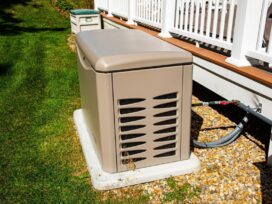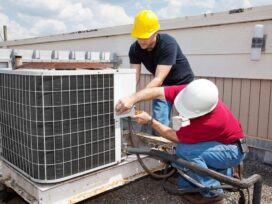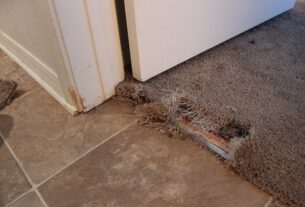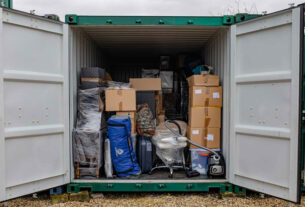
Lock Replacement: Transitioning From Traditional to Smart Security
Across the UK, there have been numerous changes in modern home security, making it essential to consult a skilled Leeds locksmith in for the latest solutions. Traditional locks, which have been the backbone for preventing intrusions for centuries, are being replaced with a newer type, which is the smart locks. This new wave of smart security systems is reshaping the landscape of privacy, offering homeowners enhanced protection, more convenience and improved integration with their smart homes. That’s why many people who are just now getting introduced to this topic can benefit from a guide such as the one below to familiarise themselves with how they can transform and upgrade their traditional lock.
What Are Smart Locks?
Smart locks introduce a new level of home security. They differ significantly from their traditional counterparts because they operate digitally and remove the need for physical keys, offering unparalleled convenience.
Benefits of Smart Locks
Smart locks have unique advantages when compared to traditional ones. They connect seamlessly with the popular smart home systems, which improve both security and control. This gives homeowners the ability to secure their private space remotely or combine their security system with any number of home automation devices, which include smart locks.
Varieties of Available Smart Locks
The current market offers an expansive selection of smart locks tailored to every person’s specific needs and preferences for security. They range from keyless entry systems that rely on customised codes to biometric locks that use fingerprint recognition. The options are incredibly varied, but all of these locks can be integrated with the majority of different door types, which guarantees a seamless transition to a more secure home.
Assessing Your Current Lock System
Before you replace your traditional lock with a smart one, you’ll need to assess your current lock system and identify what your upgrade needs and possibilities are.
Evaluating Traditional Locks
Before looking through your smart lock options, evaluate the one you already have. Consider how old it is, the condition it’s in and if it’s susceptible to the break-in techniques that burglars commonly use. This is necessary as the first step toward improved security is understanding the limitations of your current locks.
Identifying Upgrade Needs
Identifying your needs for change should be a dual evaluation, covering both security improvement and lifestyle considerations. For that, ask yourself why you want to upgrade to a smart lock. For example, if you want enhanced security or look for the convenience of remote access. Whichever one of these it is, it’ll help you choose a model that’s more suitable for your lifestyle, needs and budget while also smoothly connecting with the rest of your home automation devices. This type of assessment will guide towards making a more informed decision.
Smart Lock Compatibility with Doors
The compatibility between smart locks and the doors of your home is extremely important. To avoid any unexpected complications during the installation, make sure the smart lock you choose is compatible with the type and dimensions of your existing door.
Transitioning to Smart Locks
Once you’ve made the prep assessment of your current security system and doors, you’ll need to be aware of and consider some other factors concerning your new smart lock.
Choosing the Right Smart Lock for Your Home
Selecting the most suitable smart lock should be your first priority. To help you make this choice, consider factors such as your door type, aesthetic preferences, and the desired level of security. With the overabundance of choices on the market, identifying your distinct needs and circumstances will help you with narrowing down your options and reducing the need for a replacement of your entire door.
Installation Considerations
Once you get to the installation of your new smart lock, think about whether a DIY approach matches your handyman skills or if you’ll need a lock replacement service to help you with it. To decide easier, consider the complexity of your chosen smart lock and your proficiency in dealing with tasks like this. Keep in mind that with these types of locks, a professional installation will provide a more flawless setup in the majority of situations.
Integration with Existing Home Security Systems
To make use of your new smart lock’s full potential, you’ll need to make sure that they are harmoniously integrated with your existing home security system. For this, connect them with any security cameras, alarms and other smart devices in households. The interaction between all of these elements will bring your home’s overall security to its maximum level.
Overcoming Challenges and Concerns
As with any other device, smart locks also come with some common challenges and concerns that you’ll need to be aware of and know how to deal with if they arise.
Addressing Security Concerns
The new security considerations that you’ll need to make with a smart lock include potential hacking risks and digital vulnerabilities. Because of this, understanding the security standards related to your chosen model will be a necessity to protect your privacy. When you choose your new smart lock, verify its compliance with the industry standards to protect your home effectively.
Managing Cost and Investment
Budgeting will be one of the most important aspects when transitioning to a smart lock for many people. When you’re thinking about that, keep in mind that although smart locks involve a considerable initial investment, their long-term benefits outweigh it and will provide a return in terms of security and insurance incentives. To make an informed decision, calculate your financial respurces and keep them in mind while looking through your options.
Adapting to New Technology
With smart locks, you’ll need to embrace new technology and adapt to it, especiall if you’re new to the concept. This will evolve getting familiar with app-based controls and the security protocols behind smart locks. Even though it may appear complicated at first, this will guarantee that you’ll have a smooth and secure user experience with your new lock.
Smart Lock Maintenance and Upkeep
Preserving the optimal operation of your new smart lock will naturally require regular maintenance, which will involve consistent compliance with software updates and battery checks to prevent unforeseen lockouts. In addition, routine maintenance will extend the lifespan of your security system.
Troubleshooting Common Issues
There will be some common troubleshooting issues that come with smart locks, which can be easily resolved by referring to the specific solutions and resources online or your manufacturer’s guidelines. Keep in mind that if such problems occur, you’ll need to fix them promptly to preserve the functioning of your lock and the optimal security of your home.
Seeking Professional Support
If you experience any problem that you don’t known how to solve on your own or have any concerns regarding your new smart lock, it’s highly recommended to turn for help to a professional for support. Most reputable locksmiths and smart lock service providers will be ready to offer assistance for the maintenance and problem resolution of smart security systems and their components.
Final Words
The transition from a traditional locks to a smart one continues to be a trend in home security and it only seems to get more advanced. These solutions offer many benefits, from enhanced security to a streamlined integration with the rest of the devices in a smart home and its technologies. If you contemplate making such a transition, stay informed about the ongoing developments and technological advancementsin the dynamic market, and you’ll be able to create a safer and more secure home for yourself and the rest of your household’s members.







